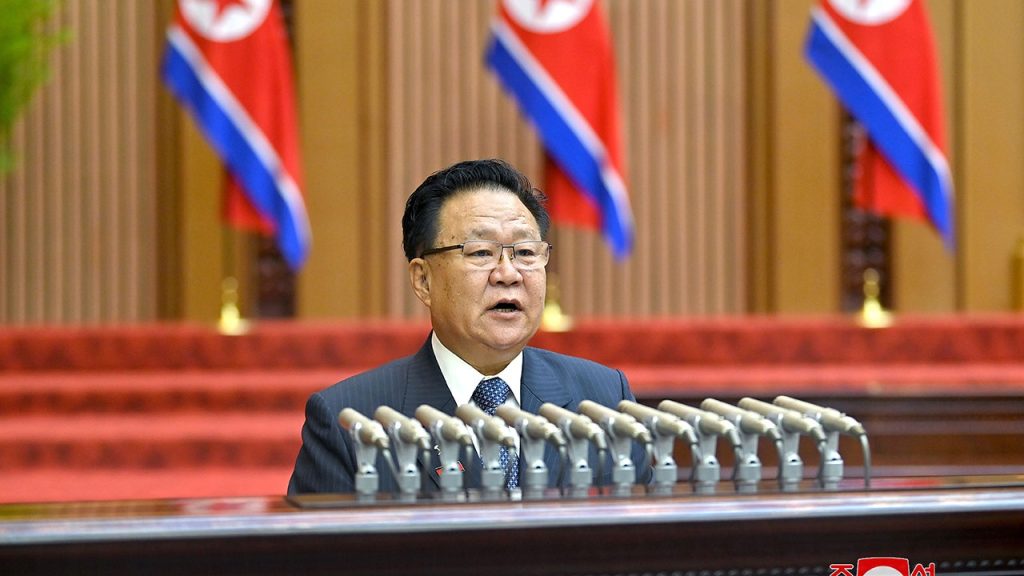North Korea announced plans to permanently block its border with South Korea and build front-line defense structures as a response to what they called “confrontational hysteria” by South Korean and U.S. forces. They did not, however, formally designate South Korea as its principal enemy as expected. Reports from Seoul claim that North Korean troops are fighting for Russia in Ukraine, adding to the tension between the two Koreas.
While the impact of these moves on relations between North and South Korea remains uncertain given the long history of halted cross-border travel, North Korea’s military stated that they will cut off roads and railways linked to South Korea and fortify their side with strong defense structures. South Korea, in response, declared that it will not tolerate any attempts by North Korea to change the status quo and will take action to punish provocations. The South Korean military also cited North Korea’s nuclear and missile programs as threats to peace on the Korean Peninsula.
Recent reports have indicated that North Korea has been reinforcing its border with anti-tank barriers and mines since April to bolster its front-line security posture and prevent defections to South Korea. The country has also been removing ties on the northern side of cross-border railways. There is speculation as to whether North Korea has made legal claims on waters currently controlled by South Korea off their west coast, where previous naval skirmishes and attacks have taken place over the past 25 years.
The Supreme People’s Assembly in North Korea recently met to amend legal ages for working and participating in elections, but it is unclear whether they addressed leader Kim Jong Un’s order in January to rewrite the constitution. This order aimed to remove the goal of a peaceful Korean unification, designate South Korea as the country’s “invariable principal enemy,” and define the North’s sovereign territorial sphere. The sensitivity of this issue may explain why the constitutional revision was not announced.
Many experts believe that Kim Jong Un’s order to rewrite the constitution was a way to diminish South Korea’s influence in the regional nuclear standoff and seek direct dealings with the U.S. Additionally, it may be an attempt to reduce South Korean cultural influence and strengthen his rule within North Korea. Tensions on the Korean Peninsula have been escalating, with North Korea conducting provocative weapons tests and South Korea and the U.S. expanding their military drills. North Korea’s recent testing of a long-range artillery system has raised concerns, particularly as it poses a direct threat to Seoul, which is only an hour’s drive from the border.


